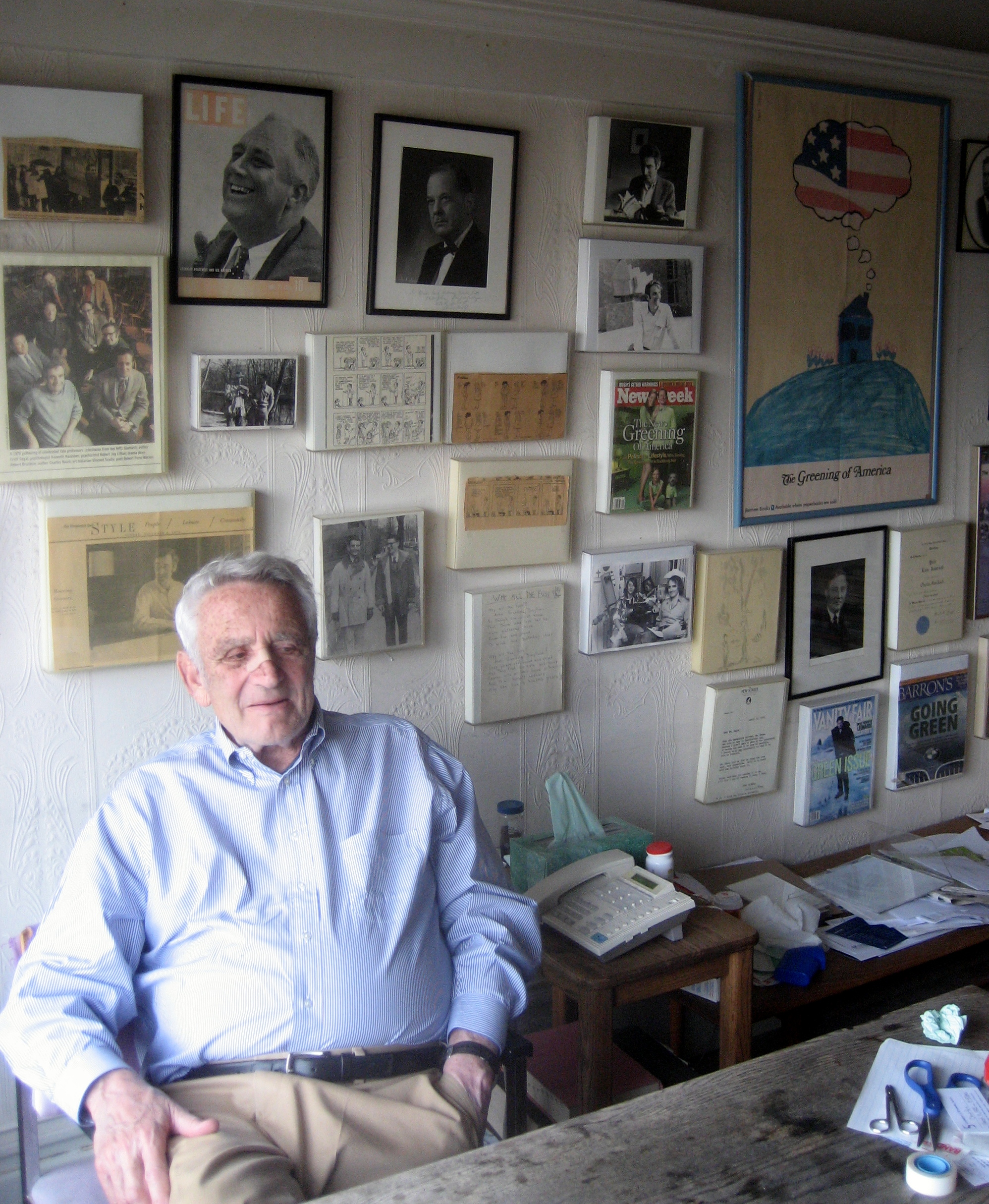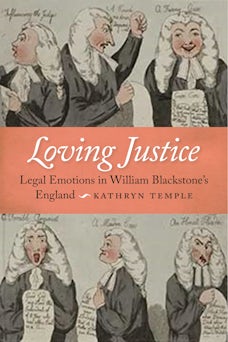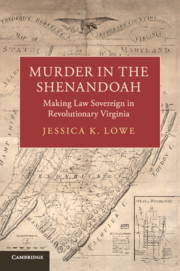I was sad to learn of the recent death of
Charles Reich, an important figure in U.S. legal and political history. The
headlines marking his passing tie him to the "counterculture," because of his influential book
The Greening of America (1970) (excerpted famously in the
New Yorker,
here). The
Washington Post's
obituary also highlights his teaching career at Yale Law School, where his students "included both Bill and Hillary Clinton."
But Reich's influence was much broader and deeper, and I want people to remember it--thus this post.
 |
| Charles Reich (Credit: John Q. Barrett) |
I should start by saying that I never knew Charles Reich personally (apart from a nice email exchange in 2006, about an article I'll mention below). For a reflection from someone who did, read
John Q. Barrett's lovely tribute,
here. He describes Reich as "a dear friend and hero to many"--someone renowned for his "brilliant mind" and who was also "a beautiful writer, a wise teacher, a sharp lawyer, a kind soul."
I first learned of Reich in graduate school, when I began studying the history of welfare rights.
Martha Davis's excellent
Brutal Need (1993) discusses him in some depth in a chapter on the road to
Goldberg v. Kelly (1970). Now only a footnote in many Constitutional Law courses,
Goldberg v. Kelly was, at the time, a big deal. Gone was the assumption that public welfare payments were a mere gratuity, to be given or taken away at some bureaucrat's whim. Instead, the Supreme Court appeared to elevate public welfare to the same status as real property for the purpose of applying the Constitution's Due Process clause. Public welfare departments everywhere took note, as did a burgeoning welfare rights movement.
But even more important than the holding, to many welfare rights advocates, was the majority's sympathetic posture. Much to advocates' delight, Justice Brennan's opinion cited two of Reich's articles--"
The New Property" (1964) and "--for observations about the life-or-death importance of welfare benefits to the individual recipient and the governmental interest
But if Sparer was "a welfare law guru," to use Martha Davis's descriptor, Reich was something different. Indeed, Davis introduces him as "a New York intellectual who never practiced poverty law" and "was an unlikely source of insights about welfare." She then explains why he was, in fact, well-suited and well-positioned to lay the "scholarly groundwork" for this important step in the court-focused part of the welfare rights campaign. It's a fascinating story, that I think offers a better picture than the mainstream obituaries of who Reich was and why his life merits remembrance.
One important background factor, was Reich's long friendship with the famous New York family court judge and child welfare activist
Justine Wise Polier (the mother of one of his boyhood friends). Through Polier, Reich met
Elizabeth Wickenden, a prominent figure in Washington policy-making circles during the New Deal and after and a determined proponent of a more humane social welfare system. As Davis notes, and as I flesh out in
States of Dependency, Wickenden sought Reich's counsel in the early 1960s, as she pondered how the Constitution might be used to stem an emerging tide of abusive and regressive welfare laws and policies. Wickenden also helped encourage Reich to develop and publish his own views on this question. For example, when (at Polier's urging) he turned his attention to one particularly offensive welfare administration practice--that of subjecting recipients to "midnight raids" of their homes--Wickenden ensured that
his article received wide national distribution and was reprinted in the
Congressional Record.
In explaining why Reich was drawn to such issues, Davis also notes Reich's time as a Supreme Court clerk for Justice
Hugo Black and how that experience reinforced what he had already started to notice, in law school and earlier, about the vulnerability of people who relied on the government for their livelihoods. As Reich highlighted in 1990, in an
article reflecting on "The New Property," one of the student notes that he helped conceptualize and publish as editor-in-chief of the
Yale Law Journal was about "
passport refusals for political reasons"; Reich was also aware of the legal work that his mentor Tom ("Tommie the Commie") Emerson had done for accused Communists and of the shadow this cast on all Emerson's associates. Reich's clerkship with Justice Black offered him additional examples. Among the cases he worked on in the 1953 term was
Barsky v. Board of Regents (1954), in which a state revoked a doctor's license after he failed to respond to a
subpoena from the now infamous House Un-American Activities Committee. The case reminded Reich, again, of the importance of government-issued benefits and how vulnerable such benefits made their holders to political pressures.
So compelling did Reich find these Cold War anticommunist persecutions, I
argued (in my very first publication!), that he made one of them the centerpiece of "
The New Property":
Flemming v. Nestor (1960), in which the Supreme Court found that the deported immigrant Fedya Nestor had no property right in his accrued Social Security benefits (and therefore no valid constitutional argument about the way in which the state took those benefits away). A decision that attracted little attention at the time was, for Reich, “the most important of all judicial decisions concerning government largess”:
No form of government largess is more personal or individual than an old age pension. No form is more clearly earned by the recipient, who, together with his employer, contributes to the Social Security fund during the years of his employment. No form is more obviously a compulsory substitute for private property; the tax on wage earner and employer might readily have gone to higher pay and higher private savings instead. No form is more relied on, and more often thought of as property. No form is more vital to the independence and dignity of the individual. Yet under the philosophy of Congress and the Court, a man or woman, after a lifetime of work, has no rights which may not be taken away to serve some public policy.
Reich went on to describe this philosophy as a "feudal" one, characteristic of "collective societies" (Nazi Germany, Soviet Russia). Is this, he asked, what Americans should aspire to? With this clever maneuver, Reich put anticommunist sentiments to work for his own end--the end of giving individuals greater power vis-a-vis those who might abuse their dependency on the state.
One could write entire articles about the importance of "
The New Property"--to constitutional law, administrative law, social welfare law, and legal theory. Indeed, many scholars have already done so. "
The New Property" also generated important insights for other fields, such as family law and privacy law. It is no surprise that, according to Fred R. Shapiro, it is among the top ten "
most cited law review articles of all time." And for me, "
The New Property" will always have special meaning: the footnotes put me onto the research path that would lead to my dissertation and, many years later, my book. From Charles Reich's research and his life, I came to appreciate the powerful connections between the welfare rights advocates of the 1960s and 1970s and the New Deal liberals who crafted the social welfare apparatus they besieged.
And, of course, "The New Property" is only one of Reich's many contributions. Thankfully, there is a growing body of work on Reich and his legacy. For a sense of the circles in which Reich traveled, I recommend
Laura Kalman's work on
Yale Law School in the 1960s, as well as her book on
Abe Fortas (whom Reich knew well). There is also a lovely piece by
Rodger Citron on "
the personal history of The Greening of America." And see the work of recent guest blogger
Sarah Seo. She has
written about Reich's encounters with the police, which often took place while he was driving, and the light they shed on the "regulatory history of criminal procedure." Even more recently, another former guest blogger,
Reuel Schiller, has
noted Reich's importance for recovering left-wing strands of anti-bureaucratic thought in the 1970s and early 1980s--strands that help explain the burst of deregulatory activity in the closing decades of the twentieth century. (I'm sure I am missing others; please let me know and I will add them.)
Perhaps, though, Reich should have the last word. Some of his thoughts about his life are memorialized in
The Sorceror of Bolinas Reef (1976), an eccentric memoir written in the wake of his
Greening of America fame. More recently, as his friend John Q. Barrett
notes, Reich had taken to
blogging and posting old photos.
The theme of his posts seems to be nostalgia for a simpler past and concern for a troubling present. For example, on December 9, 2018, as newspapers ran headlines about the Trump-Russia investigation, the last words of Jamal Khashoggi, and a devastating California wildfire, he wrote a
post recalling what it felt like to listen to FDR's fireside chats. "We felt that the country was in good hands and on the right track. Few people feel that way today." Another post, titled "
My Adirondack Photos," includes only two sentences: "When I was a teenager, I took these pictures. The view from Mt Kempshall can no longer be seen because the fire tower is gone."
Charles Reich is gone now, but, thankfully, he has left with us his unique perspective on the landscape surrounding him. That perspective mattered in 1965, as welfare rights cases were making their way to the Supreme Court, and it matters now, as we continue to puzzle over the questions that animated so much of his work: How do we vindicate liberty in an age when other cherished values seem to demand an ever greater state presence in our lives? If we invite the state to provide a humane, secure existence for its subjects, what is the price to individual freedom? And what kind of people will tend to pay it?
-- Karen Tani













